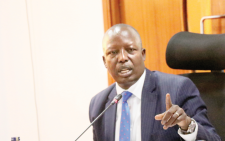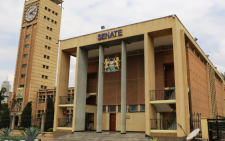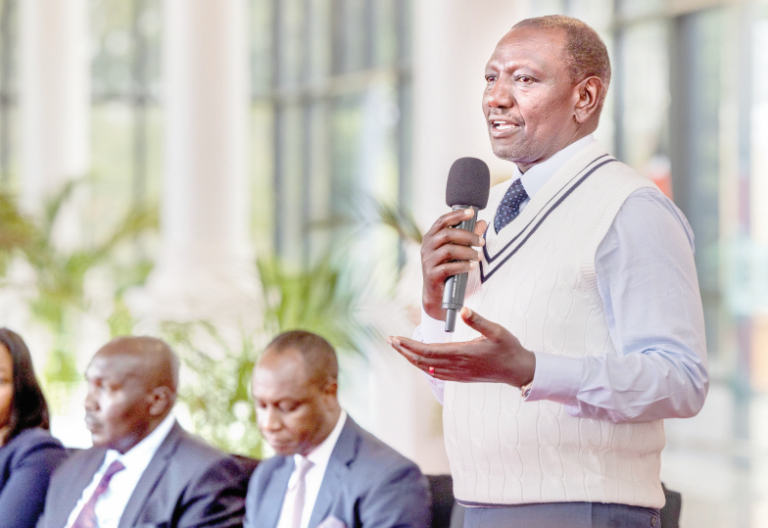10 ways to promote peace during and after elections

1. Make a personal commitment to non-violence
As it’s always said, peace begins with you as an individual. Non-violence begins by learning how to be less violent and more compassionate with ourselves. We learn by building the courage to speak and act with respect, honour and reverence for our own beings. Labour organiser Caesar Chavez teaches that if you use violence, you have to sell part of yourself for that violence. Then you are no longer a master of your own struggle. Also, Martin Luther King, Jr, had a great dream. What is your own dream for peace? Write it down. What is one thing you can do to honour your dream? Do it today.
2. Was it about you or the other person?
Some forms of disrespect, such as tribalism, are heinous, and it’s almost impossible for humans not to feel angry and upset by them. Psychologists call these insults “narcissistic injuries.” They bruise our egos and make us feel belittled. Ultimately, all types of slights boil down to the same basic feeling; being devalued or disrespected. However, psychologists say slights often stem from a misreading of a situation. Before you personalise the situation, ask yourself if the other person is affected before concluding. Regular meditation can help, as it makes us less affected by negative thoughts, and creates a more grounded and stable sense of self, so that we’re less dependent on respect and affirmation from other people.
3. Take people who hurt your feelings as personal teachers
Managing emotional reactions means choosing how and when to express the emotions we feel. People who manage emotions know that it’s healthy to express their feelings, but it matters how (and when) they express them. Because of this, they’re able to react to situations in productive ways: They know they can choose the way they react instead of letting emotions influence them to do or say things they later regret. They know that their reaction influences what happens next—including how other people respond to them and the way they feel about themselves. Therefore, people should practice some basic emotional intelligence skills such as emotional awareness, a skill that is all about being able to notice and identify the emotions we feel at any given moment and understanding them.
4. Speak out against prejudice and discrimination
“Not everyone has the luxury of leaving a prejudicial workplace or neighbourhood,” said psychologist Natasha Thapar-Olmos. To understand prejudice, we also need to understand stereotypes. Most people judge through negative stereotypes that entail beliefs that spur people to respond unfairly or incorrectly to situations because of their perceived similarity to past experiences. Stereotypes help lay the foundation for prejudice—a preconceived, unfair judgement toward a person, group, or identity— based on ethnicity, age, gender, disability, class or nationality.
5. Think before saying anything
It is not obvious that all your preferred leaders get to win the elections and this may bring you resentment as a voter, which may pull you to bad mouth. On We MD website, psychiatrist Dan Johnston notes that the familiar technique of counting to 10 not only provides the time needed for delay, but also offers a distraction from the anger-arousing event. He adds that while busily counting, we are not mentally adding fuel to the fire of anger by mulling over whatever happened. Counting to 10 becomes an even more effective way of disarming anger if we also take a slow deep breath between each number.
6. Religious programmes and ministries
In a country where freedom of worship is enshrined in the constitution, spiritual leaders have a task of unifying the country, as they speak one voice by using the values peace, love and unity. If you are a member of a religious community, ask how you can get more involved in promoting peace through its programmes and ministries. The ministry should be a neutral ground where the leaders should not show biases because they serve a congregation of people with different political stands.
7. Become mental health first aider
As experienced during the Covid-19 pandemic, many people fell into mental health problems such as depression due to various situations such as loss of jobs and the deaths. Already, anxiety is high as oppossing sides work hard to ensure they clinch the top jobs or their party wins the election. This comes with many experiencing mental distress. Therefore, you can be a brother or sister’s keeper if you become a mental health first aid consultant at that time when they may need you the most. Similarly, election candidates spend too much on campaigns and it isn’t guaranteed on who will win. Your neighbour who was vying for a seat may end up falling into depression after failing to secure the seat and you may be the one who helps them cope with the pain of loss.
8. Make your neighbourhood, school or workplace safer
Various taskforces and slogans have been launched to halt the political tension and the possibility of violence after the elections. Slogan such as Tusibleed ndio Walead and the Mkenya Daima initiative, a non-partisan multi-stakeholder platform whose primary purpose is to inspire Kenyans towards peaceful elections, have been on the forefront to ensure peace during and after the polls. It is good to serve as an ambassador of peace in whichever environment you inhabit and as a result, this will bring serenity and calmness in your surroundings.
9. Celebrate successes
Instead of tainting the reputation of Kenya as a country by gawking at the failures of our leaders, it is quite advisable as a patriot to appreciate and talk publicly about the good things that peace has brought to the country. After the violence and anxiety that was apparent in the country after the disputed presidential elections in 2017, the president and the opposition leader sought peace through a handshake that changed the course. If you don’t view the handshake at a political angle, then you will live to appreciate how it brought peace among the Kenyans.
10. Don’t hide from life
Have faith that there is still an abundance of good in this world. After the elections and all that will follow, you will still need your neighbours even more than you need them now. Let your political stand not make you lose your cool and sway you to see them as your biggest threat. There is still more that you will need to achieve in the future. Let the dream that you have fought for in the past years not get ruined by a one-day occasion. You may be the future of tomorrow; Kenya still needs you, your family needs you too. So, let peace triumph.









